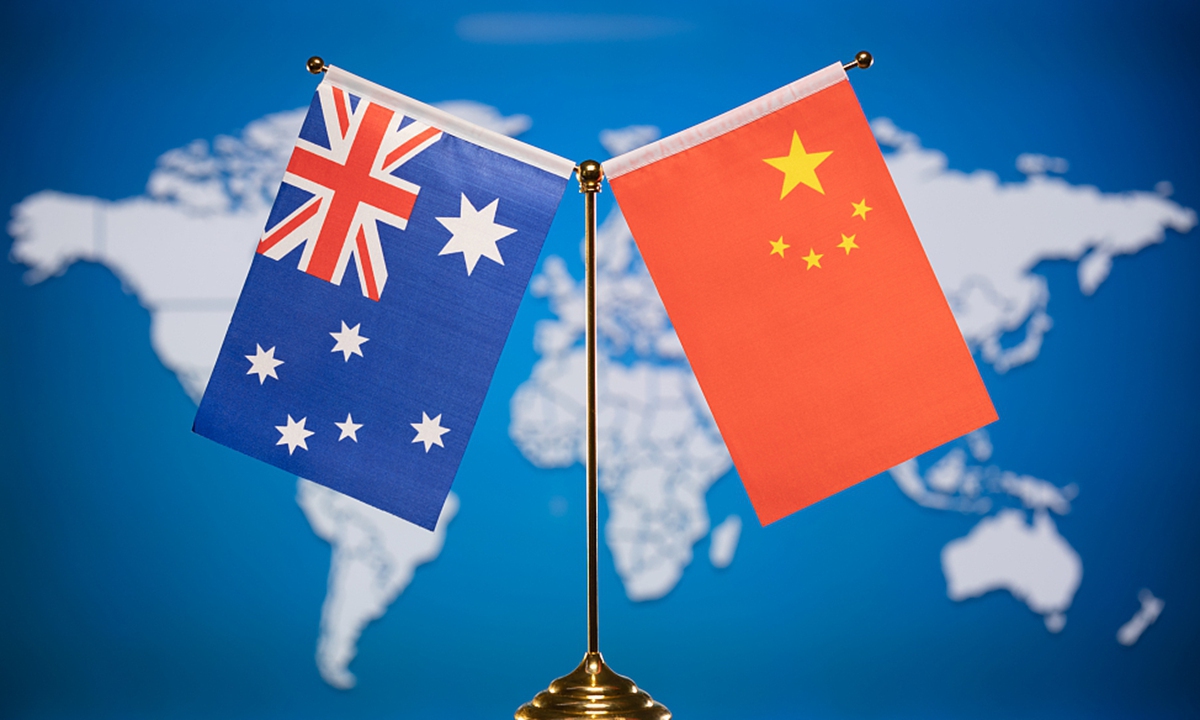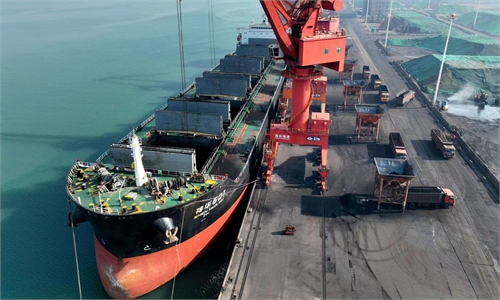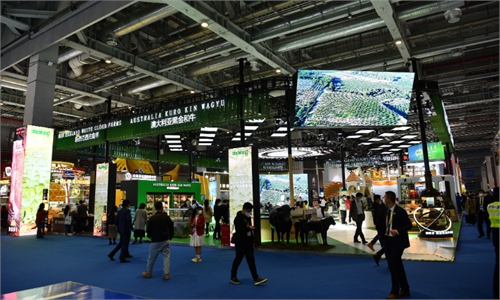
China Australia Photo: VCG
Australian Prime Minister Anthony Albanese told reporters on Saturday that Australia aims to continue to boost relations with China as it seeks to fully restore trade ties with its largest export market."China is our major trading partner, and we've worked to change the relationship," Albanese said. "We believe that it is in both our countries' interests to continue to develop more positive relations."
The Australian prime minister's remarks marked the latest positive signal in China-Australia relations, and they are undoubtedly commendable. Indeed, since the Labor government took office, Canberra has been sending positive signals to improve bilateral relations. With the meeting between the top leaders of the two countries in November and Australian Foreign Minister Penny Wong's visit to China in December, people are wondering if the year 2023 could be a crucial year for the bilateral relationship to return to a conciliatory tone.
It is still hard to say whether such positive signals could translate into boosted economic and trade cooperation and improvements to overall China-Australia ties. However, it is clear that the Australian side is increasingly realizing the importance of reversing the dangerous trend of rising hostility toward China and pursuing a more constructive relationship with China.
Australia's eagerness for improving bilateral economic ties is understandable. Against the backdrop of global economic slowdown, the Australian economy is facing mounting risks. Latest data from the Australian Bureau of Statistics showed that Australian inflation has again accelerated, rising at an annual pace of 5.6 percent in November, which prompted forecasts of further interest rate hikes in 2023. Yet, since the Reserve Bank of Australia already adopted aggressive monetary policy in 2022, fears of a recession have emerged.
For Canberra, how to lift its economy out of the current predicament is a priority in 2023, which means there is growing urgency for it to work more closely with China. China is Australia's largest trading partner, with a considerable trade deficit with the latter. Despite the tensions between the two countries over the years, Australia still gained a trade surplus of $63.26 billion with China, according to data from China's General Administration of Customs.
At present, both China and Australia are trying their best to shake off the impact of the epidemic by vigorously pushing forward with measures to revive their economies, which provides favorable atmosphere for economic and trade cooperation between the two countries. In addition to the traditional mineral and energy cooperation, economic and trade ties between the two countries still has huge potential to tap.
For instance, the need for energy transition is on the rise as Australia has suffered frequent natural disasters such as forest fire, drought, and floods over the past few years. Natural disasters are expected to be among the key factors weighing on the Australian economy in 2023, Treasurer Jim Chalmers said on Friday. Flooding cost the Australian economy more than A$5 billion ($3.5 billion).
Meanwhile, China is also working hard to meet its goals of peaking carbon emissions in 2030 and reaching carbon neutrality in 2060. With the world's largest solar panel manufacturing capacity and sophisticated wind power technology, China has the potential to cooperate extensively with Australia in areas such as the green economy.
China has been clear and persistent about its principles - that it always strives to pursue constrictive and cooperative relations with countries such as Australia based on mutual respect and win-win results. China also stresses the need to better manage differences, while seeking common ground.
Of course, it needs to be admitted that China and Australia do have differences, but they should also have the ability to keep such differences under control by being cautious on sensitive issues. At a time when China-Australia relationship is at a critical juncture for sound development, it is hoped that the Albanese government move on from political differences and meet China half way so as to jointly steer bilateral relations back on the right course for sustainable development.



